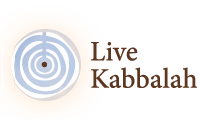Parashat Toldot relates the story of the birth of Jacob and Esau and the struggle between them. In this parasha, Esau sells his birthright to Jacob for a lentil stew, and Jacob dupes his father, Isaac, by receiving the blessing meant for Esau. Rebecca and Jacob both collaborate in fooling Isaac in order to steal Esau’s blessing. At the end of the parasha, Isaac, knowing that Jacob will continue in his path, sends him to Padan Aram to find a wife, and bestows on him Abraham’s blessing that he will inherit the land: “And Isaac called Jacob and blessed him…And God Almighty bless you and make you fruitful, and multiply you, that you may be a congregation of nations, and give you the blessing of Abraham, to you and to your seed with you, that you may inherit the land of your sojournings which God gave unto Abraham”. (Genesis 28:1-4)
The Zohar teaches that these passages are not to be read in a simplistic form, but rather that they contain a great secret in spiritual work.
There are two forces within every person – that of the body and that of the soul. Esau represents concerns of the body – selfishness, ego, materialism. Jacob represents soul consciousness, the desire to connect to spirituality, meaning, and benevolence. In our world, the firstborn is the body. The body precedes the soul. A Kabbalistic commentary states that “the peel preceded the fruit”. While the fruit ripens, its peel, like the body within which the soul matures, protects it. It is for this purpose that the major part of a child’s education that takes place in his or her formative years is in overcoming the Esau within, those bodily urges and desires, until the soul gains control over the body at the time of the Bar (a boy) or Bat (a girl) Mitsva.
Esau returns from a hunt exhausted due to his chasing after his materialistic needs, while Jacob prepares a lentil stew: “And Jacob cooked a stew, and Esau came in from the field, and he was tired” (Genesis 25:29). The Zohar explains that the word “Nazeed” (stew), from the word “leHazeed”, means to think thoughts and plot schemes in order to rob the body of its supremacy.
We are slaves to our corporeal needs and desires; we concern ourselves with the rent, bills, food, sex, honor, etc. It is written in Ethics of the Fathers, “When there’s no flour, there will be no Torah”; if one doesn’t have enough to eat, one cannot study Torah. But the body without a soul cannot sustain life. A house without a soul is just walls and pieces of furniture. A career without spirituality is stress-inducing, abrasive and causes misery.
When we consider the question of how Rebecca and Jacob contrive to cheat Isaac, we understand that this actually characterizes a daily game of “who is the firstborn” – who is in charge? the body or the soul? This question necessitates war schemes. In order to succeed we formulate ways to “deceive”. We cajole the body that it is to its advantage to study Torah. When we convince the body that spiritual people are healthier, that faith reinforces success in every field, we influence our sense of reasoning into investing time and money in spiritual development. Our sages teach that even if we study Torah for the ulterior motive of reward, we eventually end up studying Torah for its own sake.
To listen to the weekly Zohar Study click here
For additional study on Toldot and other portions enter Live Kabbalah University
2021
2020
2019
2018
2017
